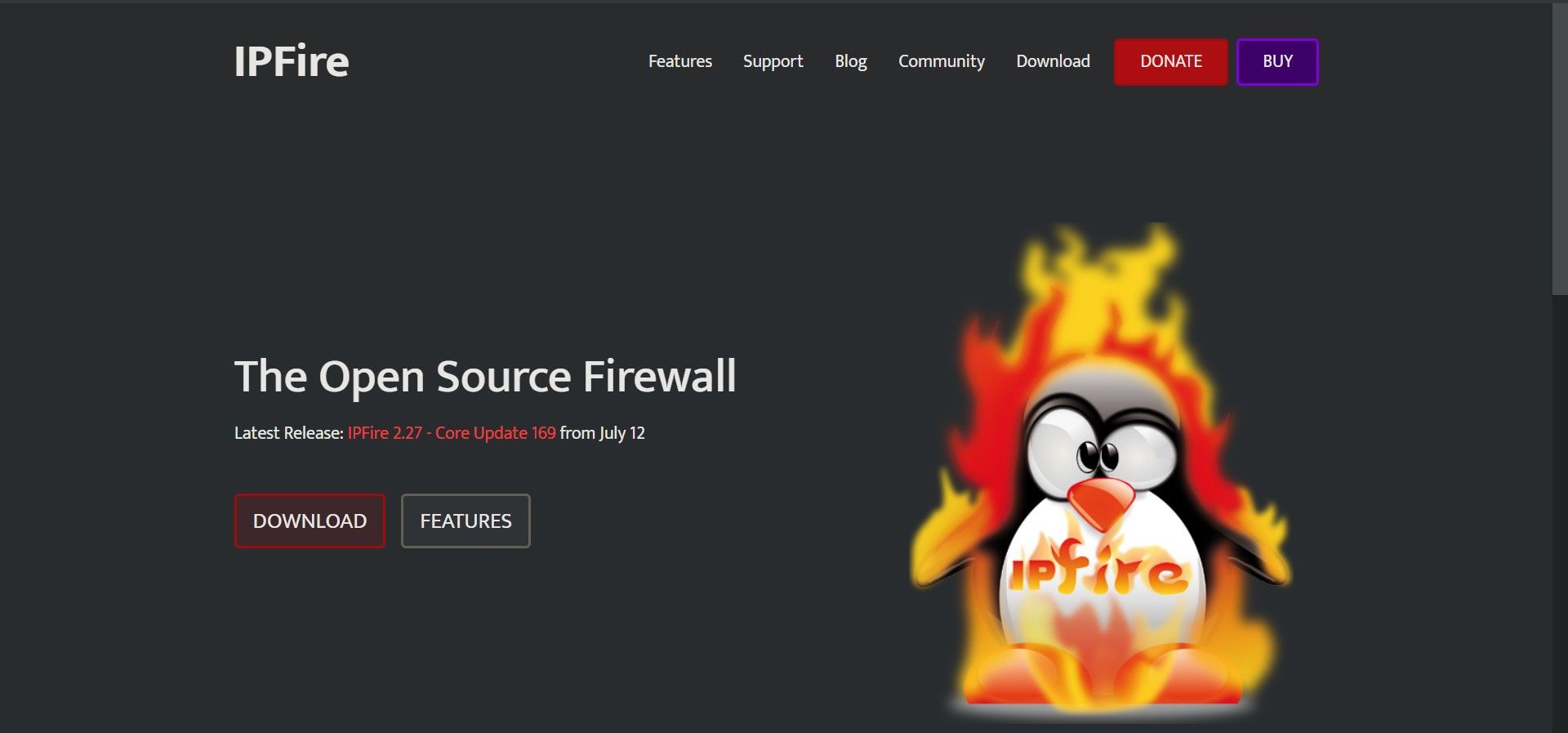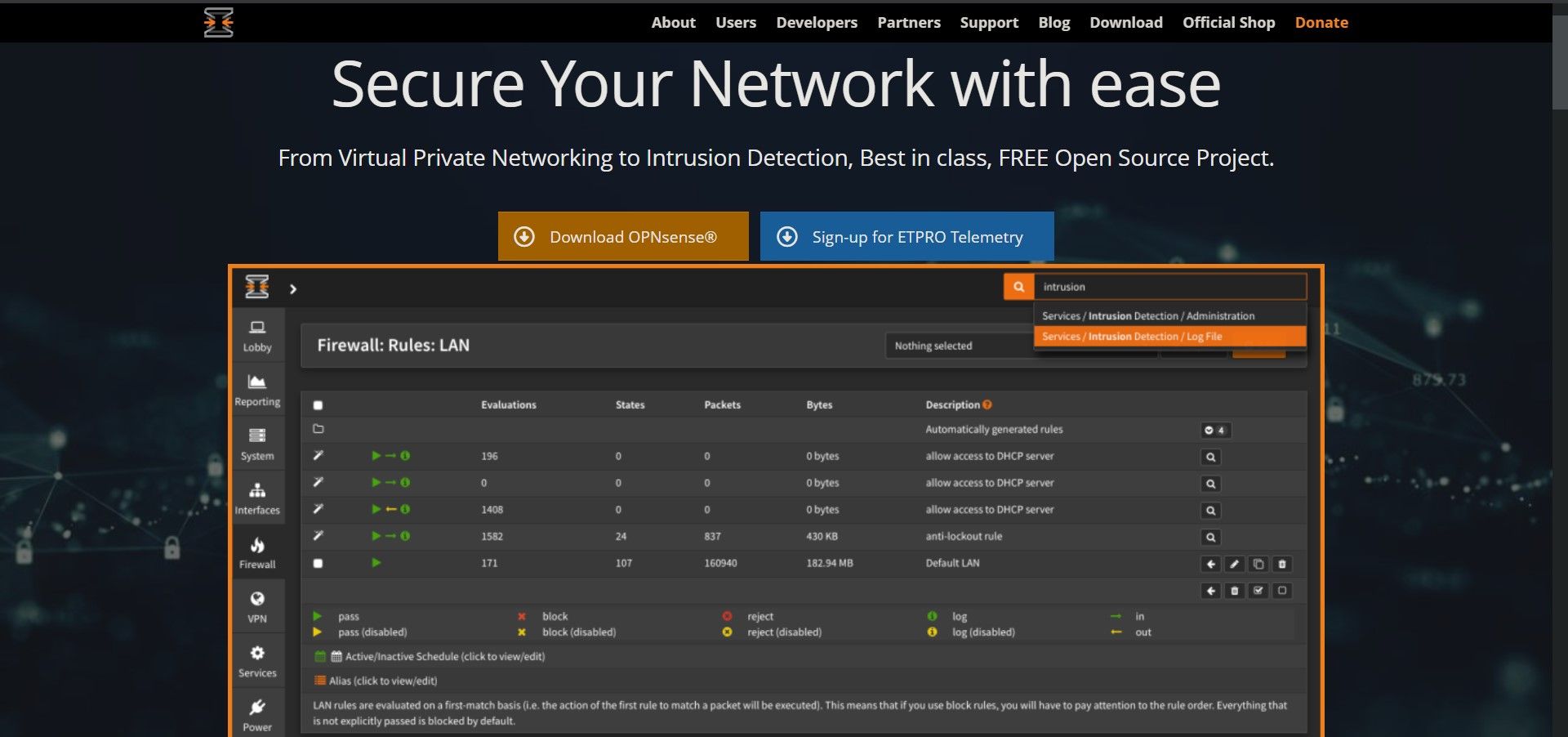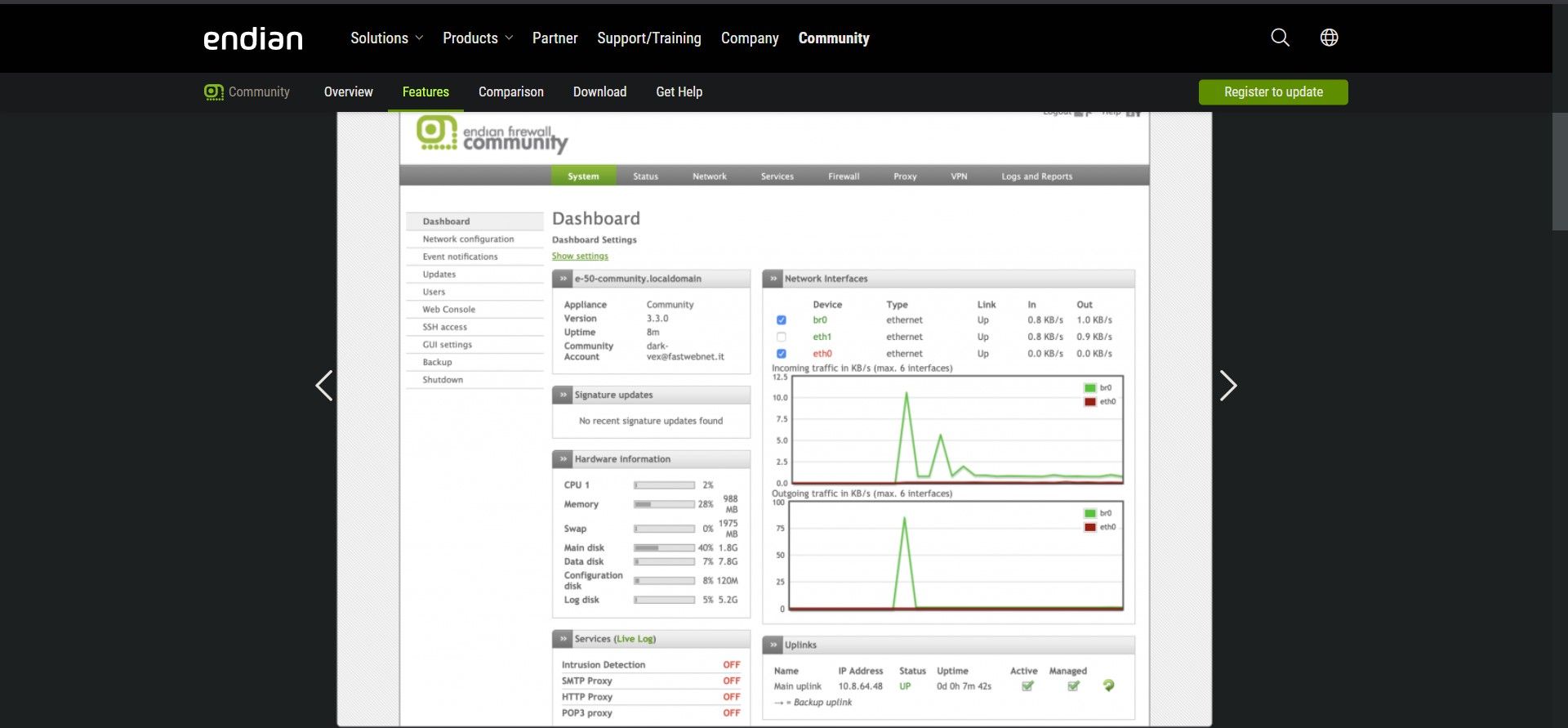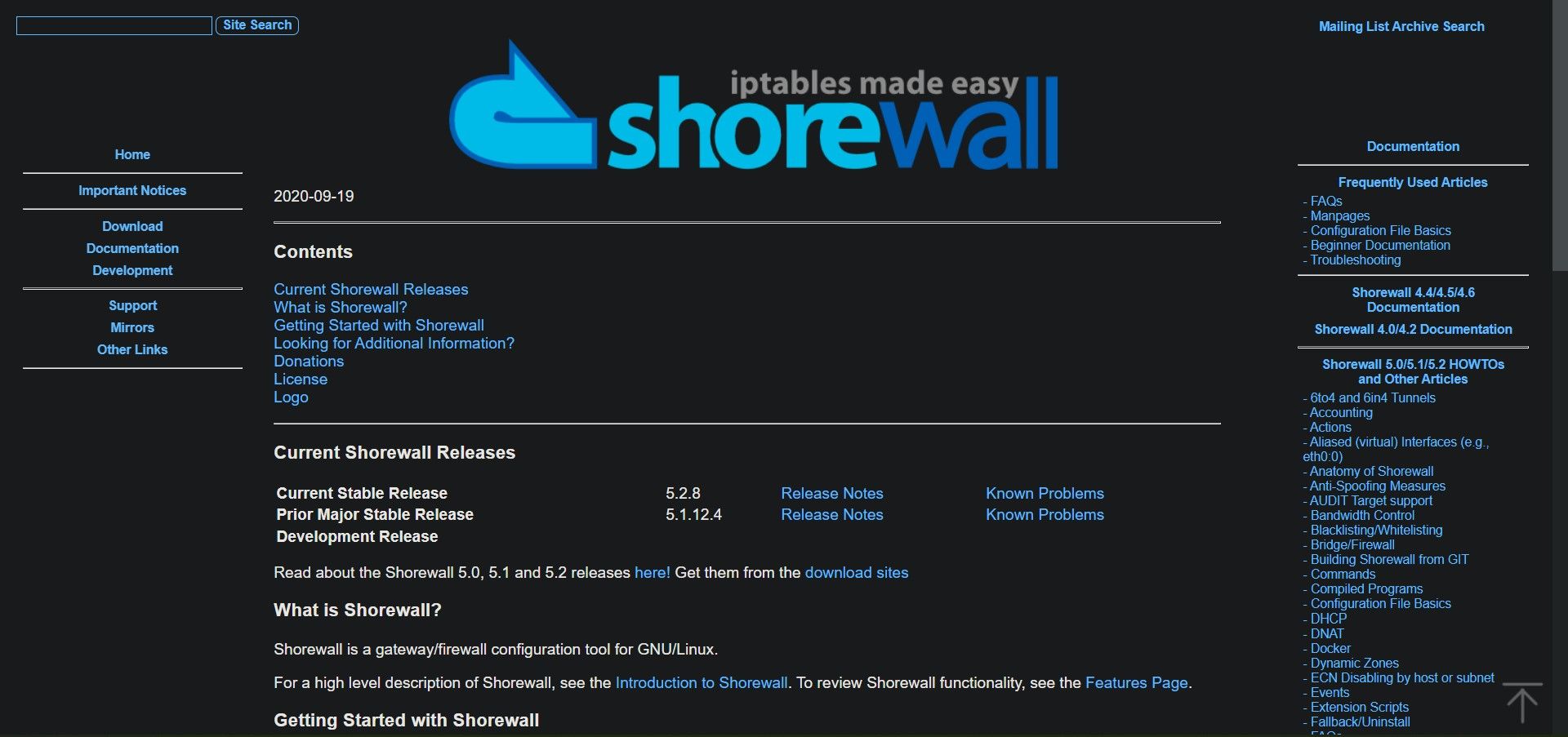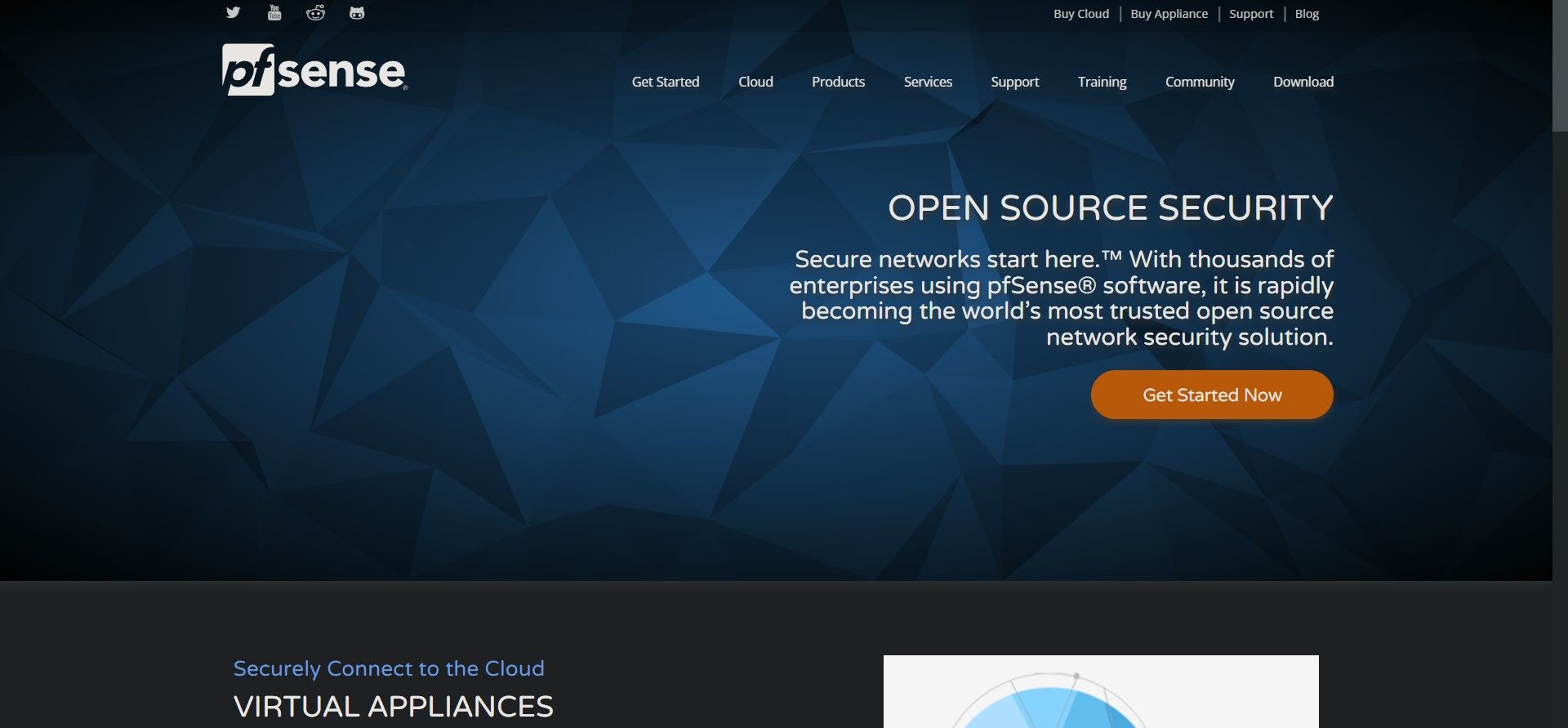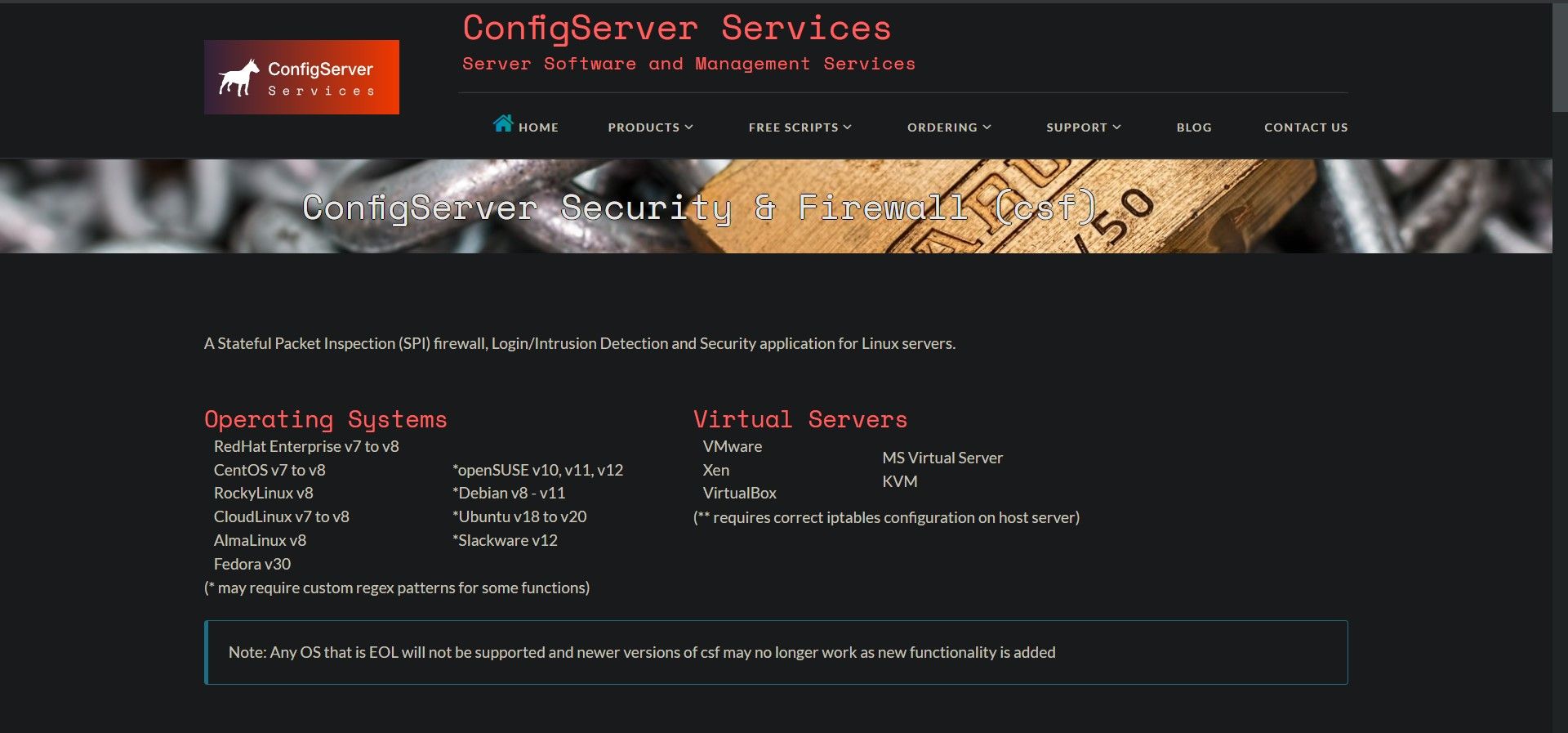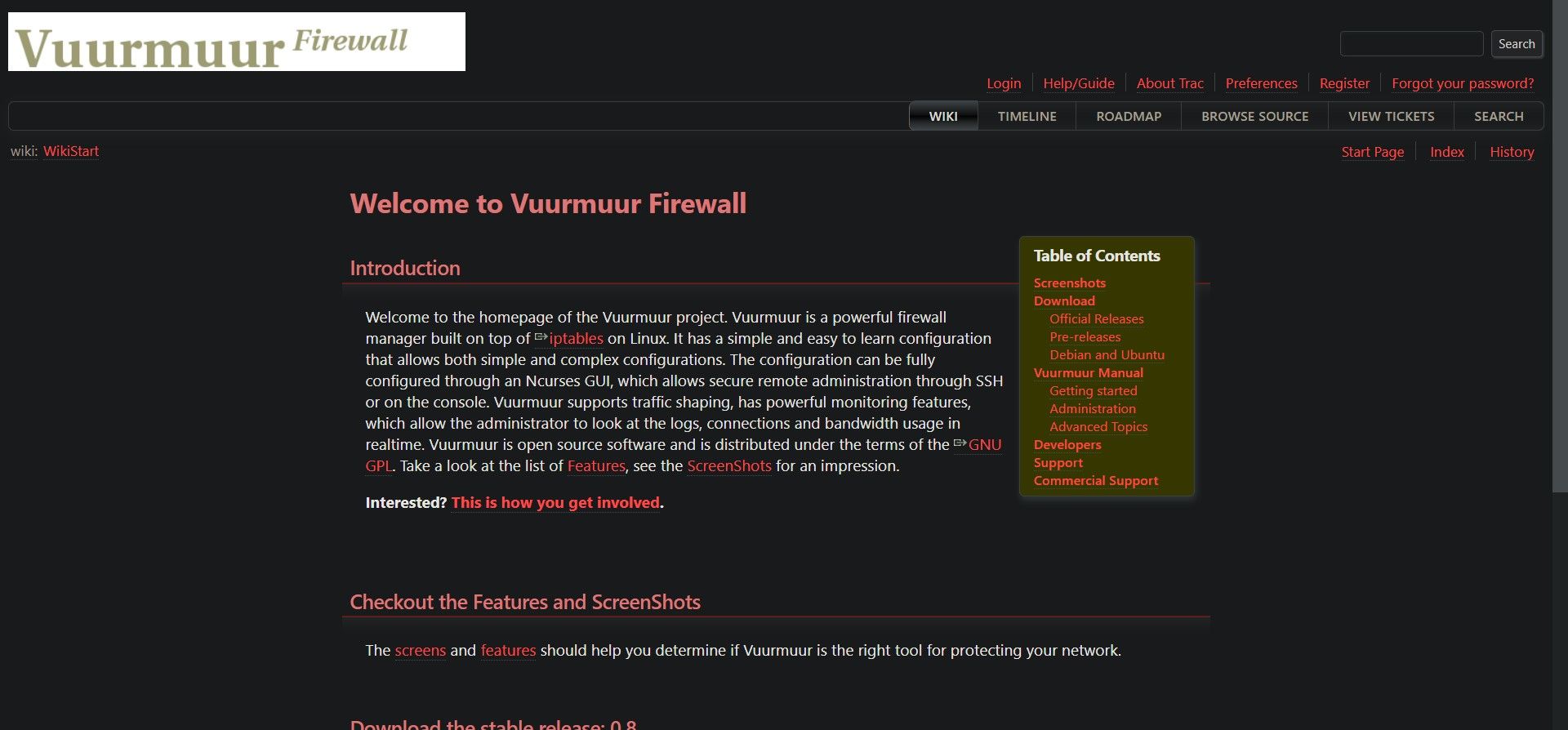10 Best Free Linux Firewall Tools

Configuring a firewall is key to securing your network perimeter. The firewall blocks sensitive ports and filters inbound and outbound traffic to disrupt malicious communications and ensure no unwanted data exchange.
There are many firewall solutions to choose from in the world of FOSS. Here is a list of the best firewall solutions to strengthen your network on Linux.
1. Uncomplicated Firewall (UFW)
UFW or Uncomplicated Firewall is the default firewall solution on Ubuntu and many popular Linux distributions. The Linux kernel uses the built-in Netfilter framework to monitor and manage network traffic.
If you are a beginner and looking for a free and easy-to-use firewall software with basic features, you can use UFW as it is easily available on your system. All you need to do is call it and apply your configurations.
IPFire is a free, secure and open source firewall distribution. It is not a software package but a complete operating system. It was initially distributed as a fork of the IPcop project. Until now, a standalone operating system based on Linux Frost Scratch (LFS) has been developed.
IPFire offers a minimal presentation and an intuitive color-coded user interface. Beginners will find it very easy to navigate the system and configure it to their requirements.
In addition to featuring firewall features, IPFire offers additional capabilities to detect and mitigate intrusions and also acts as a VPN. If you need a feature-packed, dedicated and lightweight firewall solution and are on a tight budget, you can rely on IPFire.
OPNsense is an open source, FreeBSD-based firewall distribution with free and paid subscription-based OPNsense Business Edition. It is an advanced firewall system that provides many additional features in addition to monitoring and managing network traffic.
Some of OPNsense’s key features include the ability to deeply analyze network packets, filter web traffic, and address external threats with an internal intrusion detection system (IDS).
Along with these profitable capabilities, OPNsense is the easy-to-use web interface, documentation and multilingual support that make it the choice of many. If you’re looking for a serious, advanced network security solution, you can put your faith in the richness of the OPNsense firewall system.
Indian Firewall is an open source plug-and-play stateful firewall distribution. It is available as free software or paid software if you want to enjoy customer support. It is equipped with real-time packet monitoring capabilities, antivirus, web statistics logs and more.
EFW is very flexible and you can configure it for home and enterprise users. It can build a highly secure and scalable network perimeter.
Shorewall software, like UFW, is a firewall interface that runs on top of the Netfilter framework to monitor and filter network traffic. It is open source and free to use. Unlike the aforementioned firewall solutions (except UFW), ShoreWall does not require separate hardware or virtual containers to run.
You can easily download and install and run the software package. While Shorewall is a very simple piece of software, don’t underestimate its capabilities as it is highly configurable and adapts quickly when working with rapidly changing network environments.
pfSense is an open source firewall platform based on FreeBSD. It is also the parent project from which OPNsense has been hijacked. This is why there are many fundamental similarities between pfSense and OPNsense. pfSense provides advanced network security and intrusion detection and can be deployed as a router, DHCP or DNS server.
It is very structured and flexible in the application. Moreover, the highly accessible web-based control center makes it very easy to manage the pfSense system and get a complete view of the security status of the network perimeter.
Because of its history, pfSense is well documented to help new users familiarize themselves with the environment. The commercial edition of pfSense Firewall also offers training sessions.
ConfigServer Firewall (CSF) is a free, cross-platform, and versatile firewall solution. CSF offers many features. You can configure CSF to do everything a firewall needs to do and more, from monitoring processes and the introduction of sensitive services to setting up custom email alerts whenever the system detects suspicious communications.
As it is a very advanced firewall solution, it is recommended that only administrators or technically sound users should deploy this firewall to their network.
Smoothwall is a free and open source security-intensive firewall distribution. It is one of the advanced firewall solutions that comes with features like real-time traffic monitoring, web content filtering, emergency log management and more. Although it is free software, you can also purchase commercial editions of Smoothwall if needed. Business Edition pricing is quote based.
Like UFW and Shorewall, Vuurmuur is a free and open source firewall utility that uses built-in firewall components of the Linux kernel, such as iptables and Netfilter, to manage the network perimeter. It provides an intuitive graphical user interface (GUI) layout for configuring the firewall.
Vuurmuur lies in the gray area between small and character-rich at the same time. Its GUI makes it accessible to casual users and since it is fully scriptable, you can easily implement your automation scripts.
ClearOS is an open source CentOS based firewall distribution. While the main editions are paid products, there is now a no-cost and free community edition that you can download and deploy. ClearOS, unlike other firewall solutions of its stature, is relatively easy to install and configure.
After installing ClearOS, you can configure it using the web-based control panel for easy navigation. Even better, ClearOS is widely used software and therefore well documented. If you are stuck with any issues on CleleOS, reading the documentation will surely solve your conflicts.
You should never take network security lightly. A hacker with unwanted access to your network can monitor your internet activity and can hijack your device or assume your virtual identity.
While securing your network may seem like a tedious task that requires technical know-how, in reality, a secure network is built on basic digital hygiene and a few important configurations of how you connect to the Internet. Learn more about how to set up a secure network at home.
We offer you some site tools and assistance to get the best result in daily life by taking advantage of simple experiences
